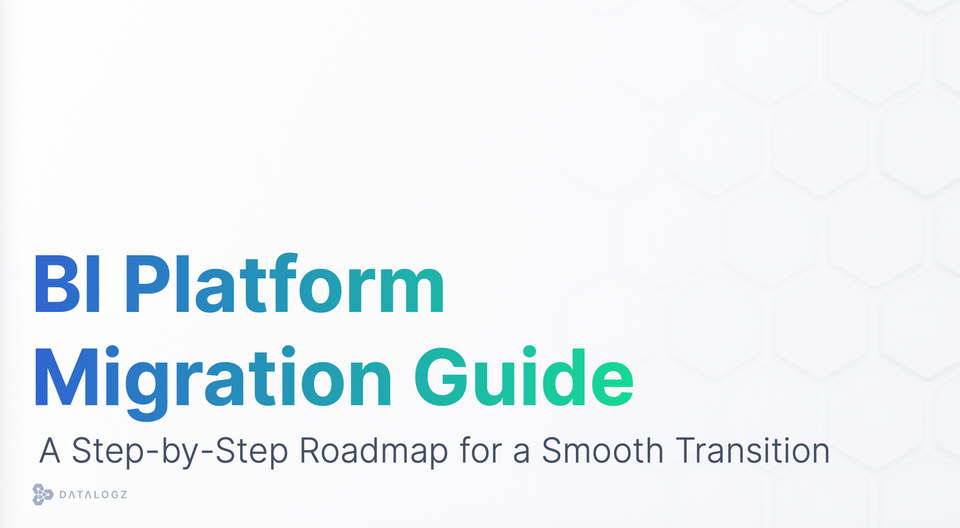How to Reduce BI Costs and Improve Efficiency with BI Ops?
BI Ops can help businesses reduce costs and improve efficiency by identifying savings opportunities, streamlining data integration, improving data quality, and automating processes.

In today's data-driven world, businesses rely heavily on a Business Intelligence (BI) ecosystem to make informed decisions. BI provides insights into various aspects of the business, such as customer behavior, sales trends, and financial performance. However, implementing and managing a BI program can be expensive and time-consuming. This is where BI Ops comes in. BI Ops enables businesses to manage their BI ecosystem more efficiently and cost-effectively. In this blog post, we will discuss how BI Ops can help reduce BI costs and improve efficiency.
Identifying Cost Savings Opportunities
One of the key benefits of BI Ops is the ability to identify cost savings opportunities. BI Ops can help businesses identify areas to reduce costs and improve efficiency. One way to identify cost savings opportunities is by consolidating data sources. Many companies have multiple data sources, which can result in redundant reports and data silos. By consolidating data sources, businesses can reduce the reports they need to generate, saving time and resources.
Another way to identify cost savings opportunities is by reducing redundant reports. Many businesses generate multiple reports for the same data set, which can be time-consuming and expensive. BI Ops can help companies to identify redundant reports and consolidate them. This can save time and resources while still providing the necessary insights.
Streamlining Data Integration
Data integration is a critical component of any BI program. However, it can be a time-consuming and error-prone process. BI Ops can help streamline data integration by automating the process. This can help reduce errors and save time and resources. For example, BI Ops can automatically extract data from various sources, transform it into a standard format, and load it into the data warehouse. This can eliminate the need for manual data entry and reduce the risk of errors.
Improving Data Quality
Data quality is another critical component of any BI program. Poor data quality can result in inaccurate insights, leading to poor decisions. BI Ops can help improve data quality by providing a framework for data cleaning and standardization. This can help ensure that data is accurate and consistent across all data sources. By improving data quality, businesses can reduce the cost of data cleaning and ensure that their insights are accurate.
Automating Manual Processes
Many BI programs require manual processes, such as data entry, report generation, and data cleaning. These processes can be time-consuming and error-prone. BI Ops can help automate these manual processes, saving time and reducing the risk of errors. For example, BI Ops can automate report generation, eliminating the need for manual report creation. This can save time and resources while still providing the necessary insights.
Many BI programs require manual processes, such as data entry, report generation, and data cleaning. These processes can be time-consuming and error-prone. BI Ops can help automate these manual processes, saving time and reducing the risk of errors. For example, BI Ops can automate report generation, eliminating the need for manual report creation. This can save time and resources while still providing the necessary insights.
BI Ops can help businesses reduce BI costs and improve efficiency. By identifying cost savings opportunities, streamlining data integration, improving data quality, and automating manual processes, companies can save time and resources while gaining valuable insights. The key takeaway is that BI Ops provides a framework for managing a BI ecosystem more efficiently and cost-effectively.
BI Ops can also help businesses improve collaboration and communication within the organization. BI Ops can help break down data silos and encourage cross-functional collaboration by providing a centralized platform for data sharing and analysis. This can lead to better decision-making and improved business outcomes.
Another benefit of BI Ops is its scalability. As businesses grow and their data needs evolve, BI Ops can help ensure their BI ecosystem can scale accordingly. BI Ops can help businesses add new data sources, automate new processes, and incorporate new insights as they become available. This can help enterprises to stay ahead of the curve and maintain their competitive edge.
To get started with BI Ops, businesses should assess their current BI ecosystem and identify areas to improve efficiency and reduce costs. This may involve thoroughly reviewing data sources, reports, and processes and identifying areas where automation and streamlining can be implemented. From there, businesses can develop a BI Ops framework aligning with their needs and goals.
In conclusion, BI Ops is an essential component of any BI ecosystem. By adopting a BI Ops framework or implementing a BI Ops platform, businesses can reduce BI costs, improve efficiency, and gain valuable insights to help them make informed decisions.



